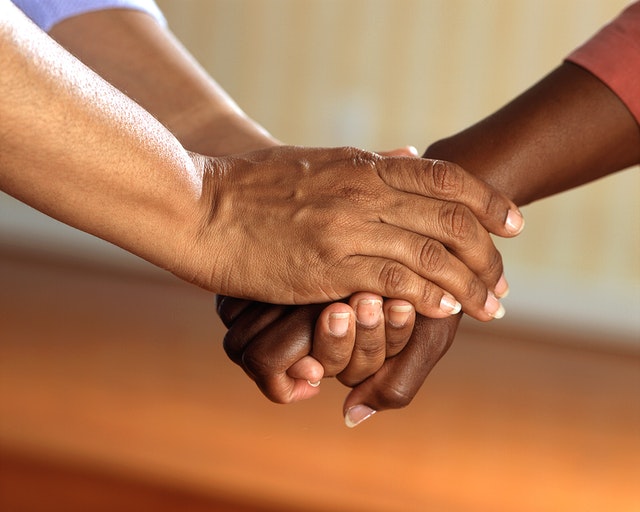9 types of toxic relationships Never to try with your lovely life| Greatcrackers
Burnout, depressed, and angry? Have you ever been there– feeling despondent–due to different types of toxic relationships? Or you’ve been tempted to accept toxic relationships as normal?
Don’t let Negative and Toxic people rent space in your head. Raise the rent and kick them out.” says Zig Ziglar.
You’d agree that no person would love to jump into a toxic relationship on purpose. Often, the case is that a once “healthy relationship” (feigned) goes berserk, leaving one at the mercy of his choice.
In this article, we’ll explore:
- what toxic relationships are
- Types of toxic relationships (you don’t experience)
- Difference between a toxic type of relationship and a healthy relationship
- How to get out of toxic relationships
What are toxic relationships?
A toxic relationship is practically any kind of relationship you enter that has the potential of taking out of your life every good thing you can think or imagine for yourself.
While that may sound awful, that’s what toxic relationships can do to anyone—including you. That’s why you should take your time to read this post till the end.
You may get tempted to restrain your thinking of a relationship here to a romantic relationship. But that’s only part of what this write-up is all about.
Toxic relationships can happen in different contexts. They can come from friends, colleagues–and even family members. In simple terms, toxic relationships damage your self-esteem and leave you shattered emotionally.
What most Types of Toxic Relationships lack
You’ve heard the expression, it takes two to tango, right? Every adult probably has heard that a hundred times. But how true is that of toxic relationships?
Yes, it takes two individuals to have a toxic relationship, just as creating and maintaining a healthy relationship requires.
That said, here are three elements that most Types of Toxic Relationships are void of (or coming from your partner):
1. Sacrifice
For every good relationship, there’s an understanding of what sacrifice means and how to live it out. But toxic relationships are void of this. That’s why you see an egoistic friend or colleague who’s only interested in getting things from others, with no intention to replicate.
2. Integrity
Integrity is the state of one’s character, with a consistent relation with virtues like trust, decency, honesty, and other morality principles. Sadly, integrity as a wholesome trait gets questioned in every toxic relationship.
3. Compassion
Only empathetic fellows know what it means to show compassion. But beyond knowing, they express it. However, toxic relationships are void of this element or attribute.
Types of Toxic Relationships
1. Controller relationship
“Controller relationship” is the type of relationship whereby one party tries to dominate another by influencing his/her choices. It may include decision-making concerning where to go, and who to visit, interact or socialize with, as the case may be.
In romantic relationships, the party exercising this undue control and dominance often do so because of some feeling of self-entitlement. And it may be due to financial power, level of education, and other background considerations far better than the other partner when compared.
2. Emotionally insecure relations
While emotionally secured persons may need help, entering into a relationship with them can be toxic in different ways. It’s because of emotional insecurity that makes people envious (or jealous) above board.
Thus, when you’re in a relationship with an emotionally insecure person, you may observe attitudes that depict envy or jealousy. That jealousy is most common in romantic relationships. And that may explain why some ladies may get excessively jealous when their partners engage in any form of interaction with any opposite gender. And vice versa.
Also, emotionally insecure persons may become overly dependent in relationships. That they barely have their own will or the ability to want things for themselves. They’re always agreeing to whatever their relationship partners suggest or initiate.
3. Whimpering relationship
A relationship with people who nag a lot is a type of toxic relationship capable of stealing your joy and creative energy. Because this category of people hardly sees anything positive in their lives to speak about.
They would rather complain about every piece of shit, at every opportunity to do just that.
Being in a friendship with a person with negative thinking and energy can be frustrating. It’s even more toxic when he/she is your partner.
4. Abusive relationship
Abuses come in different forms in interpersonal relationships. It’s the outcome of an abusive relationship. And in this type of toxic relationship, one party abuses the other in one form or another. Whether physically, emotionally, or sexually.
Physical abuse is the type of abuse that involves physical molestation. And because of physical strength, men seem to be the offenders in this stance. The same applies to sexual abuse, where a partner gets unduly persuaded into sexual activity against her will. Can this happen to men too?
While that may not be common in different cultures, some ladies abuse their partners verbally. By raining all insults that can pull out the souls of their partners upon hearing them.
5. Narcissistic partner
A narcissistic fellow is primarily egoistic, feeling self-entitled, and less empathetic. He/she always thinks of self, what he/she can gain, and how things will always be in his/her favor at the detriment of others’ peace, welfare, safety, and wellbeing.
Thus, someone who’s in a friendship or a romantic relationship with a narcissistic individual may often contend with the impression of being favored by his/her relationship with them. So you may hear a statement like this (and through their actions):
“I’m only managing you… you’re not my type.”
“I’ll give you a red card out of my life quickly if you misbehave toward me. After all, many will beg to have me in their lives.”
6. Lying relationship
This is a type of toxic relationship filled with deceits and lies. Often, in a lying relationship, one of the relationship partners fabricates lies every now and then to cover up for acts that are not noble.
And at worse, lies may flow from both ends. In any case, any relationship founded on lies or deceit is not only toxic, but won’t stand the test of time. It gives room for cheating, disloyalty and breeds lack of trust and infidelity.
7. Manipulative relationship
Manipulative relationship is the type of relationship between partners or friends where a partner adopts and applies the art of manipulation in getting things done in his/her way or accord.
There’s an element of deceit, just like in the lying relationship.
8. Leechlike relationship
You are said to be in a leechlike relationship with a person if you’re the only one dishing out value. It’s a type of toxic relationship whereby you keep giving without receiving. But what could you be giving?
You time. Your attention. Your value and commitment. And other resources.
If your relationship with a person keeps leaving the feeling of being used in you, you’re in a parasitic relationship. And you may want to reexamine what spurred the relationship in the first instance, and decide if you’d like to continue in such a toxic relationship or not.
9. Alcoholic partners
You may not have seen how a confirmed drunk drinks to stupor outside and returns home to beat his spouse like a punch bag. But it happens.
That’s just part of the nasty things confirmed drunk can do to their partners. And some cases, sexual abuse.
Signs of the distinct Types of Toxic relationships
1. Lack of support
In a relationship, individuals are supposed to show care and support to each other. But when one is in a relationship where his/her partner or significant other barely gives support that could be a sign of a toxic relationship.
Support may take the form of financial assistance, healthy counsel that boost the motivation level on the path of doing lovely things.
2. Envy & Jealousy
When a party becomes envious or jealous of the good or progress of the other in a relationship, it could be a sign of a toxic type of relationship.
3. Toxic communication
This includes inappropriate communication languages (including nonverbal communication) that stifle the health of any relationship.
4. Blame game
One of the signs of a toxic relationship is the unreadiness of partners to accept responsibility for their actions. It could be a mistake at home leading to a minor accident, or as the case may be.
Thus, when partners find it hard to own their mistakes and say sorry to each other but keep passing blames around… that’s a sign of a toxic relationship.
5. Lack of self-care
Are you stressed by a relationship, adversely affecting how you’re caring for yourself? If yes, that’s a sign of being in a toxic relationship.
Being associated with toxic people can make you forget what matters to you— that’s YOU. As well as your hobbies and other things that you have interest in.
“A healthy relationship is one where you can’t wait to see that person. You love to be around that person. You can’t get enough of that person. You’re at your best when you’re with that person.” ― Germany Kent
How to Fix (different) Types of toxic relationships
1. Own up responsibility
Accept mistakes. Work unanimously with your partner to resolve issues with no feeling of entitlement mentality.
2. Embrace healthy communication
Individuals in a relationship have the choice to engage in healthy communication, void of insults, undue sarcasm, and other irritating gestures. In short, it’s a sure way to fix any type of toxic relationship.
3. Get support through counseling therapy
Getting help from professionals in counseling therapy with track records isn’t a bad idea. It can offer one the opportunity to learn effective ways to build solid relationships with family members, friends, or your significant other.
4. Leave the past to live in today
You recall the expression, “Let bygone be bygone.”
Toxic Relationships can get mended if both parties to a relationship are deliberate about it and willing to leave past mistakes, hurt, guilt, and misery behind… to live in the present with love.
5. Avoid the blame game
This may sound like a repetition right now. But it’s one of the ways through which toxic relationships can get fixed.
Instead of telling a friend or spouse something like:
“You’re the cause of everything. You keep mismanaging things and resources”….
You may want to say something like this:
“I know we all make mistakes. But I think you can better manage this and that…”
6. Anger control
The ability to control one’s anger is another good fix for toxic relationships. Thus learning to manage your emotions and anger can help individuals in toxic relationships get things puzzled out.
With that you’ll be able to communicate frustration in your relationship with ease, without causing harm to the other party.
7. Approach situations with a problem-solving mindset
When issues arise, one may be inclined to give in to nagging. But anyone that wants to get out of challenges (including toxic relationships), should approach situations with a problem-solving mindset.
Difference between a toxic type of relationship and a healthy relationship
1. Control
In healthy relationships, people don’t compete for control and dominance; instead they strive for collaboration. On the other hand, in toxic relationships, competition seems to exist between parties, as one party desires to outshine the other.
2. Hostility
One of the qualities of healthy relationships is compassion. But that’s not the same with toxic relationships. What do you expect in a relationship that lacks compassion, empathy, and genuine love?
3. Dishonesty
When toxic people get into relationships, it doesn’t take long for them to show their character. And one of their attributes is dishonesty— that’s deceitfulness. They don’t place a premium on their words. And that explains why they can say (or promise) a thing and then act otherwise.
But in a healthy relationship, on the other hand, the relationship partners understand that relationships are created and sustained on value.
4. Disrespect
Disrespect is a hallmark feature of a toxic relationship. That’s why one party can take a decision without considering its effects on the other. Whereas in a healthy relationship, respect is a virtue shown and reciprocated.
5. Abuses
Since there’s compassion and respect in an healthy relationship, the parties involved deal empathetically with each other. Without any goal to make the other person feel used, belittled, or intentionally causing hurt on him/her.
Conversely, unhealthy relationships are characterized with different kinds of abuses. Which include physical molestations, emotional and sexual abuses.
Máire O’ Leary, author of Freewheeling to Love, quoted:
“Respect, trust and kindness are the ingredients of a good relationship”
Conclusion
We’ve looked at the different types of toxic relationships, the signs to help identify toxic relationships, and how to fix them. However, it is safer to observe before committing yourself to a person, whether as friends or as romantic partners.


![The Colonel Made Fortunes from Fried Chickens [Colonel Sanders’ Story]](https://greatcrackers.com/wp-content/uploads/2022/03/Colonel-Sanders-768x578.jpg)


![How to Communicate Frustration in Your Relationship [Expert Guide]](https://greatcrackers.com/wp-content/uploads/2022/04/DEALING-WITH-FRUSTION.jpg)

